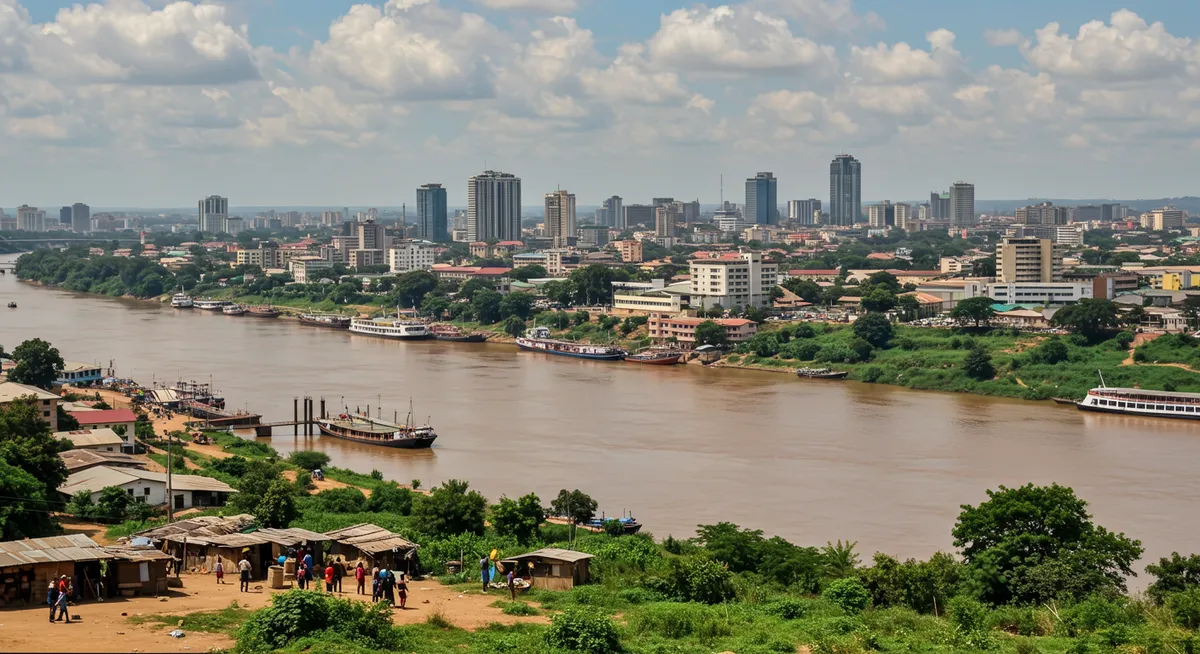
10 Essential Kinshasa Travel Hacks: Navigate the DRC Capital Like a Pro
Table of Contents
Want to find the best travel deals for this destination? Chat with our travel hacking specialist!
Get Travel HacksCategory: kinshasa-travel-hacks
10 Essential Kinshasa Travel Hacks: Navigate the DRC Capital Like a Pro
Kinshasa, the sprawling capital of the Democratic Republic of Congo (DRC), is a vibrant metropolis teeming with cultural richness, musical innovation, and entrepreneurial energy. As one of Africa's largest cities, navigating Kinshasa can be both exhilarating and challenging for visitors. From negotiating transportation in a city with limited public transit to understanding local customs and staying safe, these practical Kinshasa travel hacks will help you experience the city's incredible spirit while avoiding common pitfalls that might diminish your experience.
Key Takeaways
- Master transportation options in a city where formal public transit is limited
- Navigate language barriers effectively through key phrases and communication strategies
- Implement practical safety measures while exploring this dynamic urban center
- Access authentic cultural experiences beyond typical tourist circuits
- Prepare for practical challenges like currency management and power disruptions
1. Master the Art of Taxi Negotiation
Transportation in Kinshasa relies heavily on private taxis and shared taxi vans known locally as "taxis-bus" or "spirits." With no formal meter system, successful navigation depends on your ability to negotiate fares confidently before entering any vehicle. This skill becomes essential for avoiding significant overcharging, particularly for visitors who may be perceived as unfamiliar with local prices.
To negotiate taxi fares effectively in Kinshasa:
- Always agree on the price before entering the vehicle
- Ask local contacts (hotel staff, business associates) about appropriate fare ranges for common routes
- Learn basic numbers in Lingala or French to understand and discuss prices
- For longer trips, consider hiring a trusted driver for the day rather than negotiating multiple individual rides
- Use prominent landmarks rather than street names when describing destinations
- Consider sharing taxis with other travelers to split costs when appropriate
While app-based ride services have limited presence in Kinshasa, some newer services are emerging. However, traditional taxi negotiation remains the primary method of securing transportation for most routes throughout the city. When possible, have your hotel or restaurant call a known taxi driver rather than hailing one from the street, especially at night.
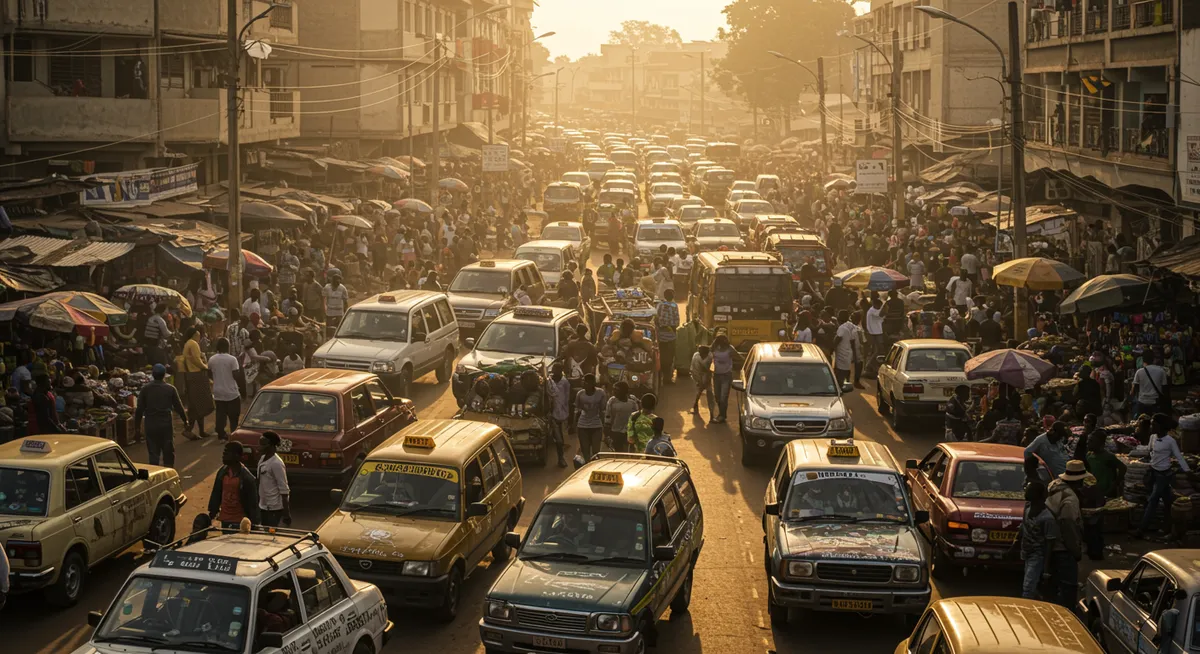
2. Prepare for Power Fluctuations
Electrical infrastructure in Kinshasa experiences frequent power outages and voltage fluctuations that can impact your daily activities and potentially damage electronic devices. Preparing for these interruptions ensures you remain connected and productive throughout your stay, regardless of local power conditions.
Essential strategies for managing Kinshasa's electrical challenges include:
- Pack a high-capacity power bank (20,000+ mAh) to charge phones and small devices during outages
- Bring a universal voltage surge protector to safeguard electronics from power spikes
- Consider a portable solar charger for extended stays or trips to areas with limited electricity
- Ensure your accommodation has generator backup before booking
- Download offline maps, translation tools, and entertainment before arriving
- Bring a small LED headlamp or flashlight for navigating during evening power outages
Many higher-end hotels and business centers in Kinshasa maintain private generators that activate automatically during outages. When booking accommodation, particularly for business travel where connectivity is crucial, confirm the reliability of backup power systems and their operating hours during outages.
Pro Tip: Charge all devices whenever power is available, regardless of battery level. Adopt the "top-up" approach used by locals who take advantage of every opportunity to charge devices, rather than waiting until batteries are low.
3. Carry Crisp US Dollars and Small Denominations
Congo's complex currency situation requires strategic cash management for travelers. While the Congolese Franc (CDF) is the official currency, US Dollars are widely accepted—and often preferred—for many transactions, particularly in establishments catering to visitors or for larger purchases. However, specific conditions apply to the acceptability of dollar bills that can surprise unprepared travelers.
For optimal currency management in Kinshasa:
- Bring newly issued, unmarked, and unwrinkled US dollar bills printed after 2013
- Have a mix of small denominations ($1, $5, $10, $20) for everyday transactions
- Exchange some dollars for Congolese Francs for small local purchases, especially in markets
- Count change carefully, particularly when receiving mixed currency transactions
- Be aware that torn, marked, or visibly worn US bills will likely be rejected
- Use secure hotel safes for storing most cash and only carry what you need for the day
Official exchange services are available at banks and authorized exchange offices, though rates may vary. Avoid street money changers who may offer attractive rates but present security risks. Credit cards have limited acceptance, primarily at high-end hotels, restaurants, and selected supermarkets in upscale areas like Gombe, so cash remains essential for most daily transactions.
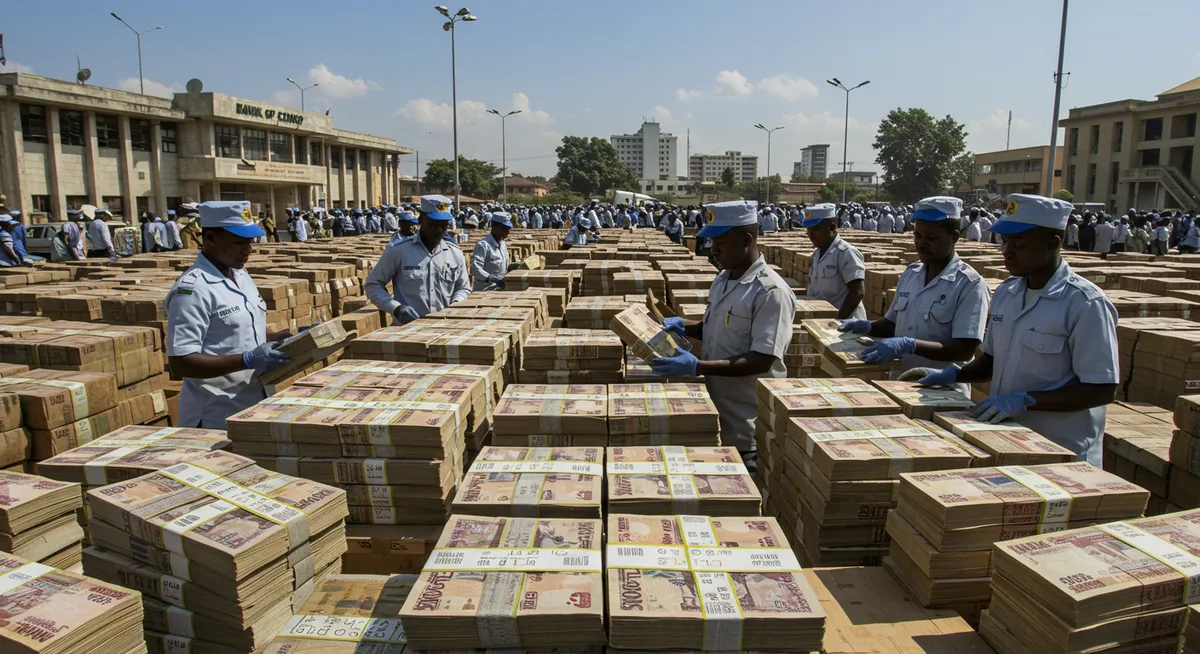
4. Master Essential French and Lingala Phrases
While French serves as the official language of business and government in the DRC, Lingala is the predominant language for everyday communication in Kinshasa. English has limited penetration outside international business circles and high-end tourism facilities. A strategic approach to language navigation can significantly enhance your experience and demonstrate respect for local culture.
Critical language phrases to learn include:
- French: "Bonjour" (Hello), "Merci" (Thank you), "Combien ça coûte?" (How much does this cost?), "Parlez-vous anglais?" (Do you speak English?)
- Lingala: "Mbote" (Hello), "Matondo" (Thank you), "Tala" (Look), "Malamu" (Good)
- Safety phrases: "Au secours!" (Help!), "Police!" (Police), "Hôpital" (Hospital)
- Negotiation phrases: "C'est trop cher" (That's too expensive), "Je peux payer..." (I can pay...)
Consider downloading an offline translation app that includes Lingala, as this language may not be included in all standard translation tools. Google Translate offers French offline capabilities, and specialized apps like "Learn Lingala" provide basic vocabulary. Writing down key addresses and phrases in both English and French can help bridge communication gaps when verbal communication proves challenging.
Pro Tip: Learning even basic greetings in Lingala will often shift the dynamic of interactions significantly, demonstrating respect and often resulting in more favorable treatment in negotiations and social situations.
5. Dress Strategically for Local Contexts
Kinshasa maintains a distinctive dress culture that blends professional formality with vibrant self-expression. "La Sape" culture (Société des Ambianceurs et des Personnes Élégantes) influences fashion sensibilities, placing high value on presentable attire even in everyday settings. Understanding appropriate dress codes helps you navigate social situations effectively while showing respect for local customs.
Guidelines for appropriate dress in Kinshasa include:
- For business meetings: Conservative, formal attire (suits for men, business dresses or pantsuits for women)
- For casual settings: Clean, pressed clothing that remains relatively modest
- For religious sites: Covered shoulders and knees for all genders
- For practical concerns: Lightweight, breathable fabrics that manage humidity
- For evening events: Slightly more formal than might be expected in Western contexts
Despite tropical heat, shorts are rarely worn by adult Congolese in urban settings except for specific athletic activities. Visitors wearing extremely casual attire may find themselves received less respectfully in business and social contexts. When visiting government offices or formal institutions, business attire is essential for being taken seriously and gaining access.
While some accommodation for foreign visitors exists, making an effort to meet local standards of presentability demonstrates cultural sensitivity and often results in more productive interactions throughout your stay.
6. Navigate Internet Connectivity Challenges
Internet access in Kinshasa varies dramatically by location and provider, with connection speeds and reliability generally below international standards. Strategic preparation for connectivity challenges ensures you maintain necessary communication and access to digital resources throughout your visit, even during infrastructure disruptions.
For optimal digital connectivity in Kinshasa:
- Purchase a local SIM card upon arrival (Vodacom, Airtel, and Orange are major providers)
- Load data packages rather than relying on pay-as-you-go rates, which can escalate quickly
- Download essential resources (maps, translation tools, documents) for offline access
- Schedule bandwidth-intensive activities (video calls, large uploads) during off-peak hours
- Identify reliable connectivity hubs (major hotels, certain cafes) for critical communications
WhatsApp represents the dominant communication platform in the DRC and installing it before arrival facilitates easier communication with local contacts, drivers, and service providers. Many businesses and individuals prefer communication via WhatsApp over traditional SMS or phone calls.
For longer stays or business travelers, consider obtaining SIM cards from multiple providers to alternate between networks depending on which is functioning more reliably in different parts of the city or at different times.
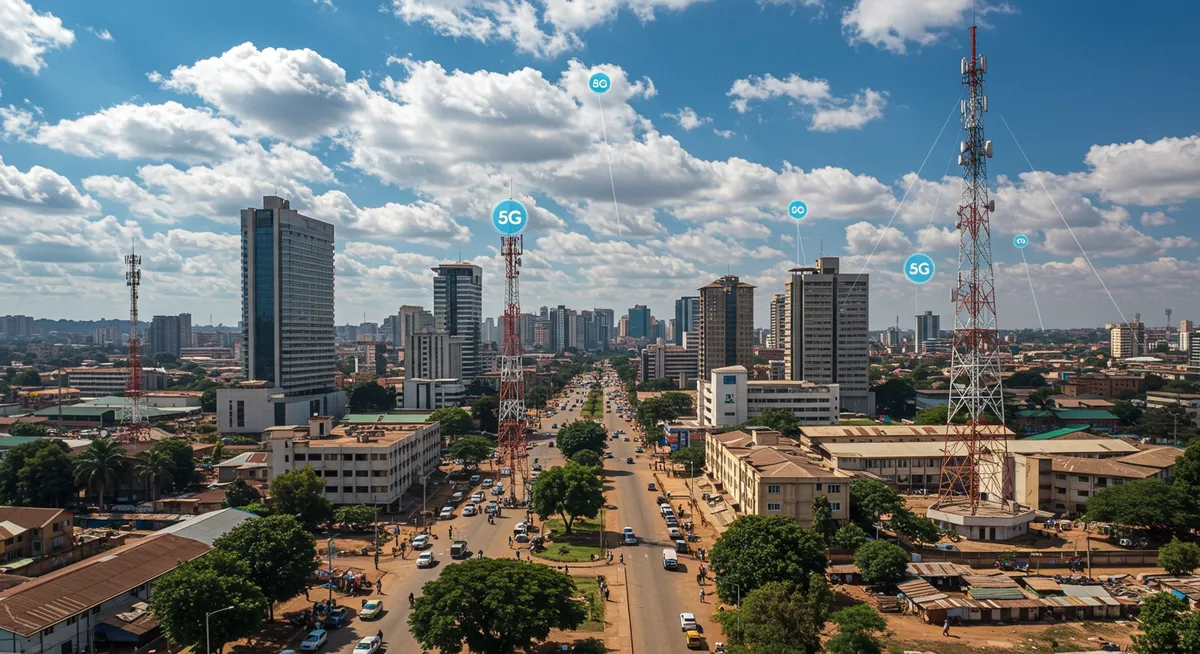
7. Develop Street Food Safety Strategies
Kinshasa's vibrant street food scene offers authentic culinary experiences and flavor profiles difficult to find in restaurant settings. However, navigating food safety requires strategic approaches to minimize health risks while still experiencing local gastronomy. With proper precautions, you can enjoy Kinshasa's street food culture without compromising wellbeing.
For safer street food experiences:
- Seek busy stalls with high turnover, ensuring food doesn't sit for extended periods
- Watch for vendors who handle food and money separately or use gloves
- Choose freshly cooked, hot food prepared in front of you over pre-prepared items
- Try grilled items like "brochettes" (meat skewers) which reach food-safe temperatures
- Approach raw items and unpeeled fruits with greater caution
- Carry alcohol-based hand sanitizer for when soap and water aren't available
Popular street foods worth trying with reasonable safety profiles include grilled corn, plantains ("makemba"), grilled fish, and meat skewers. For beverages, coconut water served directly from the shell provides both hydration and relative safety compared to other street beverages.
Pro Tip: The local saying "Wash it, cook it, peel it, or forget it" serves as a practical guideline for food safety decisions. Items that meet at least one of these criteria present lower risk profiles for visitors.
8. Prioritize Riverside Sunsets
The mighty Congo River defines Kinshasa's western edge, creating one of Africa's most spectacular urban river scenes. Experiencing sunset along the river offers not only stunning natural beauty but also a window into local leisure culture and a moment of tranquility in this energetic metropolis. This experience consistently ranks among visitors' most memorable moments in the city.
Prime locations for experiencing Kinshasa's riverside sunset include:
- Le Jardin de Chine (Chinese Garden) near the Parliament building, offering manicured viewing areas
- Hotel Fleuve Congo Royal's rooftop bar, providing elevated perspectives with premium service
- Kinkole fishing village on the eastern outskirts, where locals gather for weekend relaxation
- La Guinguette restaurant, offering waterfront dining with sunset views
- The Corniche promenade along Boulevard du 30 Juin, popular with local families
For the optimal experience, arrive at your chosen location approximately 45 minutes before sunset (typically between 5:30-6:00 PM depending on the season). This timing allows you to observe the transformation of the river landscape as the light changes. Bringing a small snack or arranging for dinner at waterfront establishments enhances the experience.
Remember that photography near government buildings or infrastructure (including the Congo River bridges) can sometimes attract unwanted attention from officials. When capturing sunset views, focus on natural landscapes rather than sensitive structures to avoid potential complications.
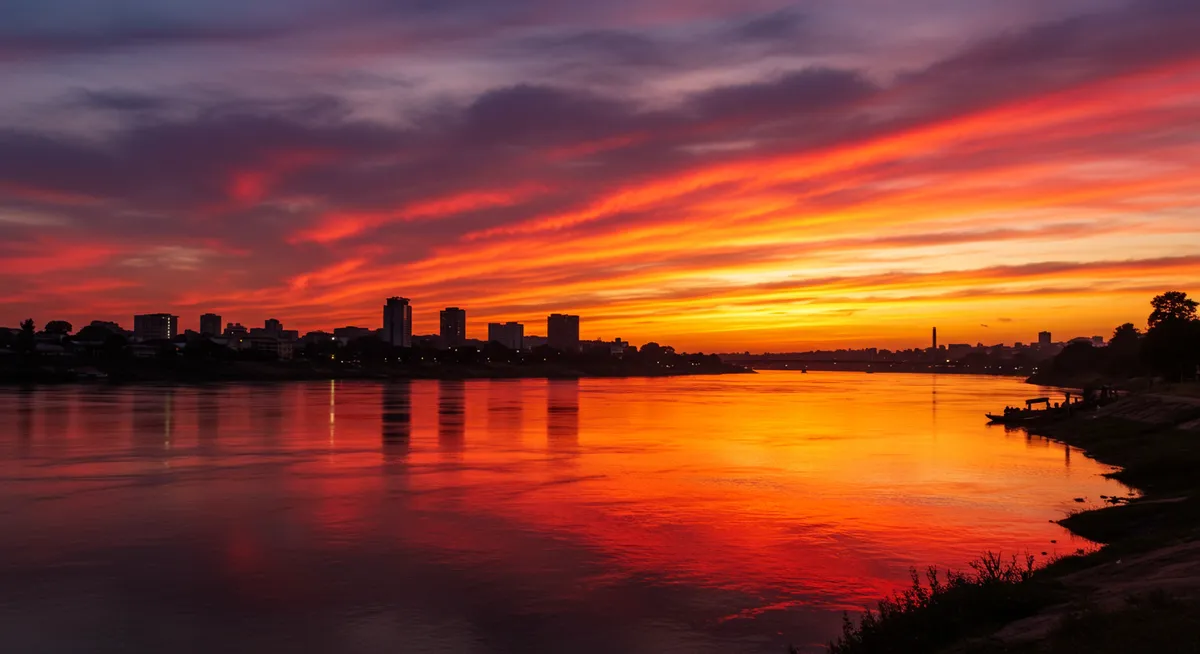
9. Navigate Documentation Requirements Carefully
Navigating administrative and documentation requirements in Kinshasa requires careful preparation and ongoing vigilance. Congolese authorities may request documentation checks during your stay, and proper preparation prevents complications that could otherwise disrupt your itinerary or create unnecessary stress.
Essential documentation practices for Kinshasa visitors include:
- Carry photocopies of your passport biographical page, visa, and entry stamp (leaving originals in your hotel safe)
- Keep digital backups of all travel documents in cloud storage and on your phone
- Bring multiple passport-sized photos for potential administrative needs
- Have your yellow fever vaccination certificate readily accessible (required for entry and sometimes checked)
- Maintain hotel receipts or proof of accommodation
- Keep contact information for your embassy or consulate in Kinshasa
For longer stays, be aware that visitors may need to register with local immigration authorities. Your accommodation can typically assist with this process. Business travelers should maintain clear documentation of their purpose, including invitation letters, business contacts, and conference registrations when applicable.
If approached by officials requesting documents, remain respectful but cautious, particularly if they suggest "fees" for irregularities. When possible, request to continue any detailed document review at a police station or official office rather than street-side, which reduces the likelihood of irregular requests.
Pro Tip: Save your hotel's business card with their address in French as soon as you check in. This provides both a reliable way to direct taxi drivers and documentation of your accommodation if needed during official interactions.
10. Experience Kinshasa's Legendary Music Scene
Kinshasa stands as one of Africa's most vibrant music capitals, with pioneering contributions to soukous, rumba, and contemporary African pop. Experiencing this legendary music scene provides cultural insights unavailable through other channels and creates memorable connections with the city's creative energy and social dynamics.
To experience Kinshasa's music culture authentically:
- Visit Un Deux Trois in Bandal neighborhood for traditional Congolese rumba performances
- Experience Chez Ntemba for contemporary Congolese pop in an upscale setting
- Explore Hall de la Gombe for events featuring established artists
- Check event listings at Institut Français for curated cultural performances
- Consider Maison de France for jazz and fusion performances in a secure environment
- Visit Kintambo neighborhood on weekends for authentic local music experiences
Timing matters significantly when planning music outings in Kinshasa. Most venues become active only after 10 PM and reach their peak energy around midnight or later. For visitors concerned about late-night security, earlier performances can sometimes be found at cultural centers and upscale hotels, though these may offer more moderated versions of the authentic experience.
When attending music venues, travel with trusted local companions when possible, particularly for locations outside main expat areas. Arrange reliable transportation back to your accommodation in advance, as finding taxis late at night can present challenges in some neighborhoods.
Frequently Asked Questions
Is Kinshasa safe for tourists?
Kinshasa requires heightened awareness but can be navigated safely with proper precautions. Stick to recommended areas, avoid displaying valuables, use trusted transportation arranged through your hotel, and maintain awareness of your surroundings. Most visitors experience no security issues when following basic safety protocols and seeking local advice about which areas to visit.
What are the must-visit attractions in Kinshasa?
Key attractions include the National Museum of the Democratic Republic of Congo, Lola ya Bonobo Sanctuary, Académie des Beaux-Arts for contemporary Congolese art, Symphonies Naturelles for traditional crafts, and the bustling Central Market (Marché Central). The Congo River waterfront and vibrant nightlife districts provide cultural immersion, while day trips to Zongo Falls offer natural beauty outside the urban environment.
When is the best time to visit Kinshasa?
The dry season from June to September offers the most comfortable conditions for exploring Kinshasa, with lower humidity and minimal rainfall. December to February provides another relatively dry period, though with higher temperatures. The rainy seasons (October-November and March-May) present significant downpours that can disrupt transportation and outdoor activities, though accommodations are often more affordable during these periods.
How should I handle photography in Kinshasa?
Photography requires sensitivity in Kinshasa. Always request permission before photographing individuals, and never photograph government buildings, bridges, airports, military personnel, or police. Even seemingly innocuous infrastructure photos can create uncomfortable situations with authorities. For street photography, consider hiring a local guide who can facilitate appropriate permissions and navigate any questions from officials or residents.
What vaccinations do I need before traveling to Kinshasa?
Yellow fever vaccination is mandatory and documentation will be checked upon entry. Additionally, the CDC and WHO typically recommend typhoid, hepatitis A and B, tetanus-diphtheria, and polio vaccinations. Malaria prophylaxis is essential, as Kinshasa is in a high-risk malaria zone. Consult a travel medicine specialist at least 4-6 weeks before departure for personalized advice based on your health history and current conditions in the DRC.
Navigating Kinshasa successfully combines practical preparation with cultural sensitivity and local knowledge. By implementing these ten essential travel hacks, you'll bypass common challenges that often frustrate first-time visitors while accessing authentic experiences that reveal the city's unique character and vitality. Kinshasa rewards travelers who approach it with respect, flexibility, and a spirit of adventure—offering memorable encounters with one of Africa's most dynamic urban environments and its remarkably resilient and creative population. For a broader understanding of travel strategies across Africa, explore our comprehensive travel hacks guide or our specialized resources on travel safety precautions for challenging destinations.
Related Posts
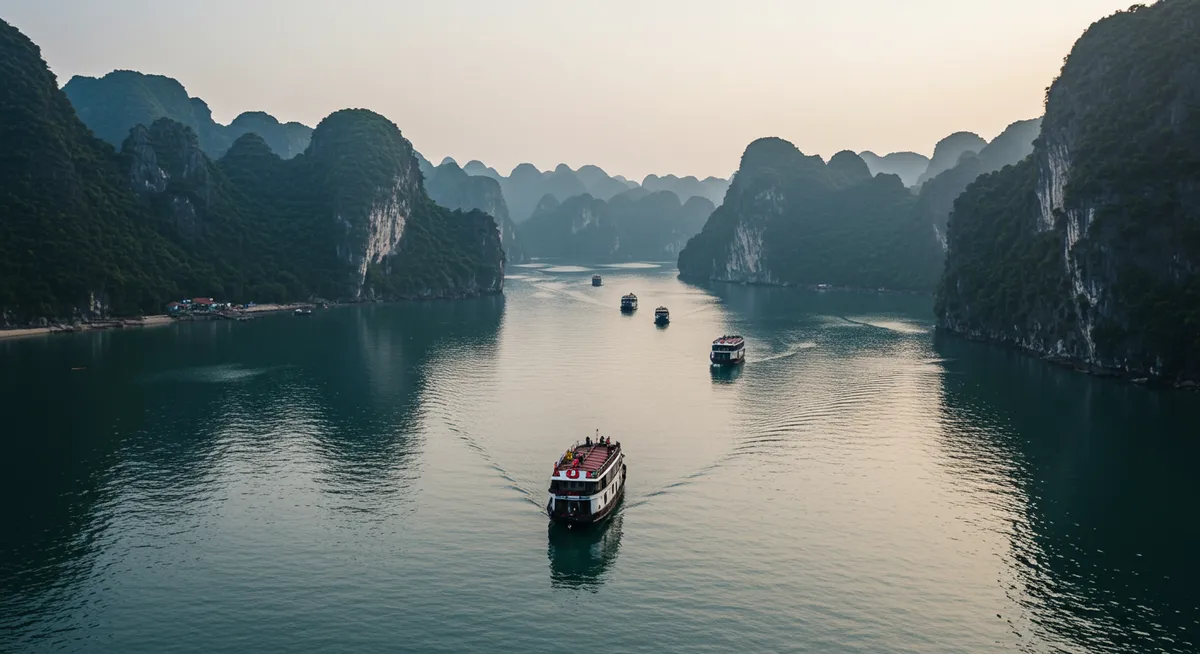
Hanoi to Halong Bay: Bus Distance & Time
Hanoi to Halong Bay distance by bus is typically 160-170 km. Discover common travel times, bus options, and essential tips for your journey to this stunning UNESCO site.
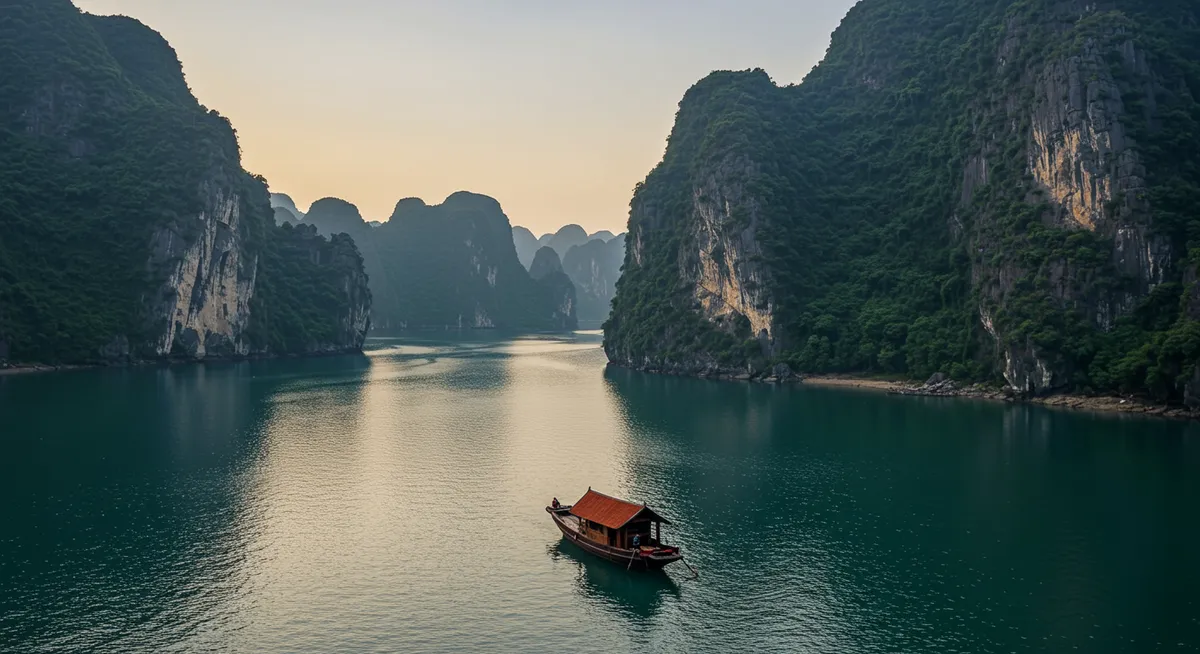
How Long is the Drive from Hanoi to Halong Bay?
Discover how long is the drive from Hanoi to Halong Bay, plus factors affecting travel time. Get tips for a smooth journey in 2024.
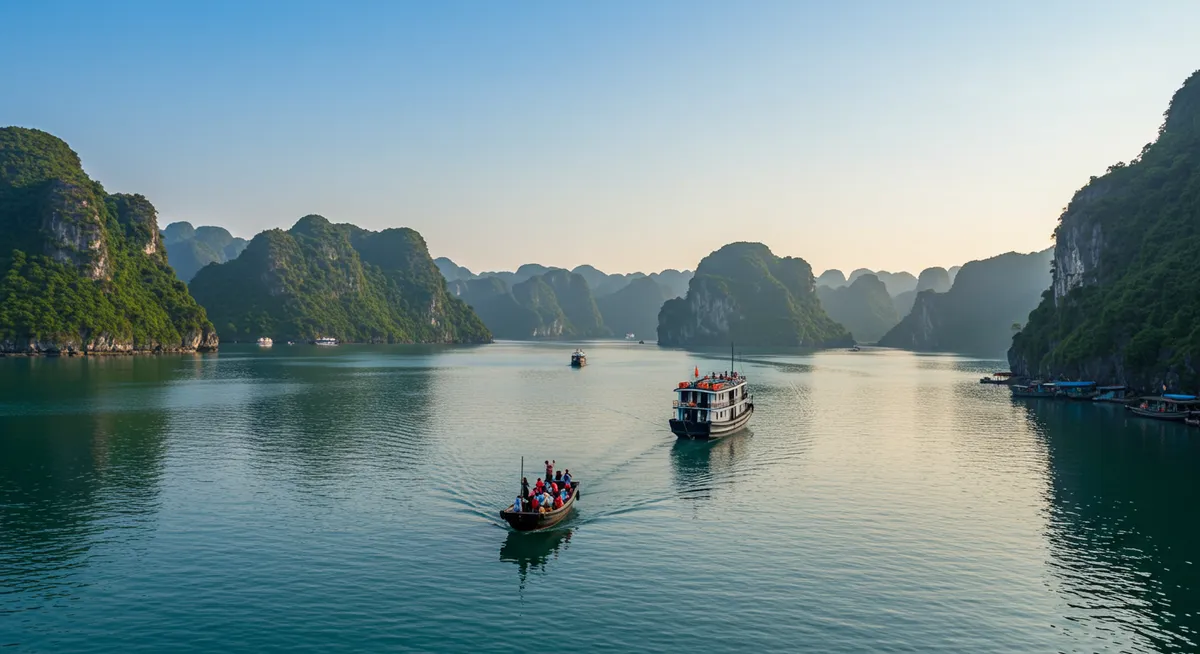
Is Halong Bay Worth It? Your Ultimate Guide
Is Halong Bay worth it? Discover if this UNESCO World Heritage site lives up to the hype for your Vietnam itinerary. Get insights on cruises, costs, and tips for an unforgettable trip.